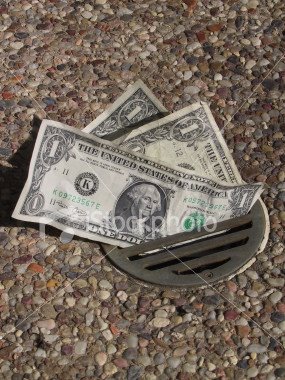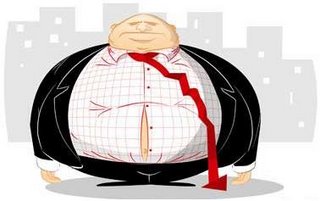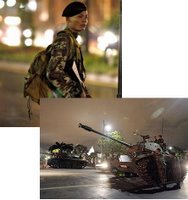If democratic rule is not quickly restored, the resulting political instability could crimp domestic consumption, delay needed spending on infrastructure and
scare off foreign investors.
On Wednesday, Gen. Sondhi Boonyaratklin, the leader of the Thai army, assured the nation in a televised address: "We don't have any intention to rule the country and will return power to the Thai people as soon as possible." Sondhi said the country would be returned to civilian rule within two weeks.
Tim Condon, Singapore-based head of Asia research with ING, said he expected a sharp decline on
the Thai stock market, particularly shares held by the Thaksin family. He also sees weakness in the baht until the political situation stabilizes.
The Thai stock market was ordered closed by the military on Wednesday, though trading is expected to resume on Thursday. After news of the coup spread in New York on Tuesday, two closed-end funds specializing in Thailand fell about 4%, presaging weakness when Bangkok trading resumes.
The
baht fell 2% against the dollar, a large decline for what had been a strong currency this year, but not a fall that indicated a total collapse in investor confidence. Given the country has foreign reserves of $59.6 billion, fast-growing exports and improved public finance, there does not seem to be much chance that the economy will suffer the way it did in 1997, when foreign investors suddenly pulled out of Thailand, setting off an economic crisis across Asia.
Moody's Investors Service, the bond-rating agency, told clients it considered the coup as "primarily a domestic political development, rather than as a financial development." It suggested the political situation could rapidly normalize if the coup clears the way for elections. A vote had been scheduled for November before the military action, but it was unclear if it could be arranged that quickly.
Moody's noted that Thaksin's administration was generally friendly to foreign investors, which might not be the case among the major opposition parties.
A rival rating agency, Standard & Poor's, was less optimistic. Ping Chew, a credit analyst, said the political impasse already has taken a toll on domestic consumption and investment interest in the country, and that a continuing of current impasse would affect the country's investment climate. Standard & Poor's put Thailand's triple-B-plus debt on its Credit Watch list of issues whose ratings might change, with negative implications.
The political paralysis in the past few months has claimed casualties in a projected $7 billion spending on public infrastructure projects, which is critical to Thailand's economic growth in the next few years. Already, the political uncertainty has halted the extension of Bangkok metro line and new highway plans.
More immediately, the automobile industry, which has drawn significant foreign investment, is suffering from plant closures on Wednesday at Nissan Motor and Mazda Motor in what has been declared as a day of "public holiday."
Another casualty will likely be Thailand's plans to become a regional transportation hub. The government had planned to use the Sept. 28 opening of Suvarnabhumi, or Golden Land, airport in Bangkok as a showcase. The airport has been touted as the most modern in Asia, but the plans to draw international traffic will probably have to wait for a while.
Labels: article, coup, economic, economy, finance, finances, financial, information, intesting, investments, market, military, money, news, share, stocks, Thailand, trading, update
 Global leaders must find a way to unravel lop-sided trade and investment flows or risk a slump in the U.S. dollar that would create havoc for the world economy.
Global leaders must find a way to unravel lop-sided trade and investment flows or risk a slump in the U.S. dollar that would create havoc for the world economy. 

